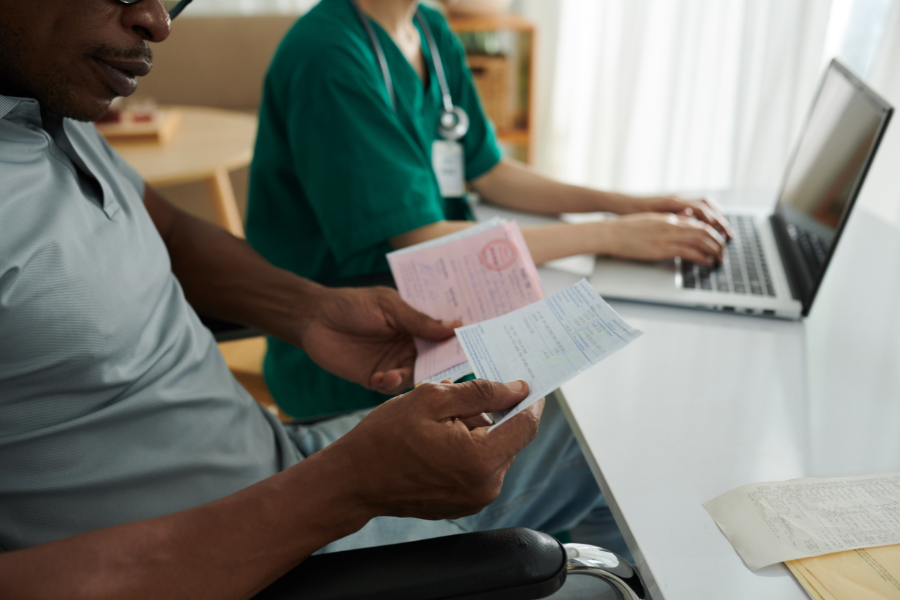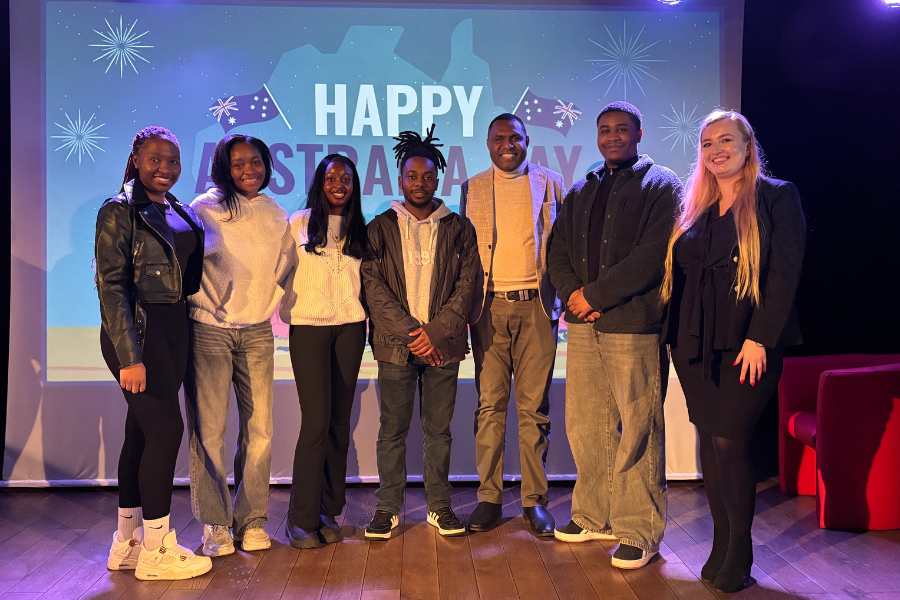Space Exploration is not only fascinating, but also has an influence on the quality of our life on earth.
Martin Braddock, Ph.D, biologist and biochemist carried out the lecture organized within the scope of the project titled „High five to science”. Martin Braddock, Ph.D., talked about the details of the interdependencies and benefits of the work of scientists that we get in everyday life. The meeting with the scientist was hosted by Konrad Szocik, Ph.D.
Scott and Mark Kelly are twins; while one spent a year on the International Space Station, the other lived and worked on Earth. As part of the NASA Twin Study project, both were precisely examined. Scientists looked at their chemical signatures, epigenetic regulation of gene expression, and measured the metabolomics of the immune response. The microbiome of both men, i.e. the specific bacteria living in their intestines, was also scrutinized. The research will not only serve to prepare astronauts for missions beyond Earth’s atmosphere, but will also help protect the health of all those who will never board a spacecraft.
Muscle strength and bone density of those who return from space missions, are reduced. What is more, the efficiency of their cardiovascular system also decreases. It happens due to the fact that there is no gravity in space. While looking for solutions for astronauts, scientists are also finding out about solutions useful for people suffering from osteoporosis, but also for patients of all ages who suffer from paralysis or other locomotor activity limitations.
Martin Braddock provided many examples of overlapping research areas related to pharmacology and space exploration. These included Formoterol, the active ingredient in the popular asthma drug Symbicort, and early stage drug discovery related to protein crystallization: as it turns out that microgravity greatly aids in crystal formation.
During the lecture, we also heard about millisieverts, or units of radiation, and guidelines related to radiation therapy for cancer patients. We also considered the issues of what challenges need to be met to enable long-term missions beyond Earth, and how can scientific research on drugs be conducted in space? In addition, one of the interesting topics raised by the lecturer was 3D bioprinting. As the scientist explained, 3D bioprinting does not differ from ordinary 3D printing in anything special: except that cells are used as bio- ink and not other materials. So is it possible to develop regenerative medicine and create space farms of human organs? And what about improving the human body with the tools of synthetic biology?
Martin Braddock’s fascinating lecture was ended with comments from Internet users, who asked, among other things, whether conducting pharmaceutical research in space is strategic for drug research and health care on Earth, what is the issue of transiting and moving between environments with different gravity, and whether goals of space missions goals can justify human genetic modification.
Those who have not had the opportunity to see the meeting yet and are looking for the answers to the following questions: What are the stages of drug discovery and development? Can microgravity help in this process? What drug research has been done in space and how can the effects of the space environment be counteracted in the future? – are invited to watch the recording of the meeting titled: „The future of humanity in space. Identification of threats and opportunities for modern medicine and pharmacology.
Martin Braddock, Ph.D., is a professional scientist, project manager and project leader working for a large pharmaceutical company. biochemist a biologist and project manager with over 34 years’ experience working at prestigious universities and in the life sciences industry. He worked for years at the University of Oxford and is currently a Fellow of the Royal Society of Biology and the Royal Astronomical Society. He has authored over 180 articles in many journals and co-invented 8 patents. Martin Braddock is also a member of Sherwood Observatory in the UK and a Fellow of the Mansfield and Sutton Astronomical Society.
The lecture „The future of humanity in space. Identification of threats and opportunities for modern medicine and pharmacology” was organized as part of the project „High five to science”, through which the University of Information Technology and Management in Rzeszow provides video and audio materials from dozens of completed lectures and open meetings.
More information about the project is available HERE.


